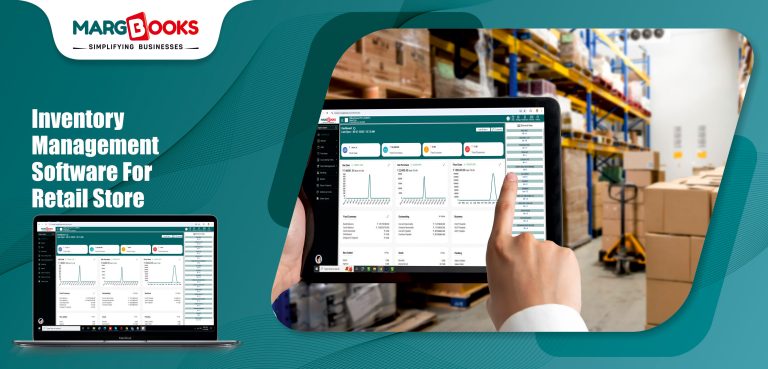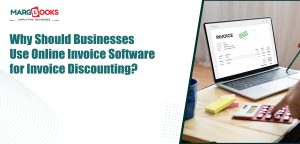In the retail industry, managing inventory effectively is one of the most critical components to ensure smooth operations, customer satisfaction, and profitability. Retailers face constant challenges such as stockouts, overstocking, and the inability to track products in real time, all of which can lead to missed sales opportunities, waste, and poor customer experiences. Fortunately, the advent of inventory management software (IMS) has revolutionized the way retail stores manage their stock.
By automating and optimizing the processes of tracking, ordering, and organizing inventory, these software solutions empower retailers to streamline operations, improve decision-making, and stay ahead in an increasingly competitive market. This blog explores the importance of inventory management software for retail stores, its key features, benefits, and how it can transform a business.
The Importance of Inventory Management for Retail Stores
Before diving into the specifics of software solutions, it’s important to understand the role of inventory management in retail operations. At its core, inventory management involves overseeing the flow of goods, from receiving them from suppliers to selling them to customers. Effective inventory management ensures that a store has the right products in the right quantities at the right time, minimizing stockouts or excess inventory.
Inefficient inventory management can lead to several problems:
- Stockouts: If you run out of a popular product, customers may leave your store empty-handed, leading to lost sales and potentially lost trust.
- Overstocking: On the other hand, overstocking can result in cash being tied up in unsold goods and can take up valuable shelf space, making it harder to stock new, in-demand items.
- Inventory Shrinkage: This includes loss due to theft, damage, or errors. Without proper tracking, it can be difficult to detect shrinkage.
- Inaccurate Reporting: Poor inventory management can lead to incorrect stock counts, making it harder to plan for restocking, forecasting, and analyzing trends.
By implementing inventory management software, retail stores can reduce these risks, boost their profitability, and improve overall customer satisfaction.
Key Features of Inventory Management Software for Retail Stores
Inventory management software provides a wide array of features tailored to help businesses streamline their operations and stay on top of their inventory. The core functions include:
- Real-Time Stock Tracking: One of the primary advantages of IMS is its ability to track inventory in real time. Whether items are sold in-store or online, the software automatically updates stock levels, reducing human error and ensuring that inventory data is accurate at all times.
- Barcode Scanning and RFID Integration: Many inventory management systems allow retailers to scan barcodes or use RFID technology to instantly update stock levels, reduce manual input, and improve accuracy during stocktaking.
- Inventory Forecasting: Good IMS software can analyze sales data to predict demand trends, helping retailers plan ahead and order the right quantities of stock. This feature helps businesses avoid both overstocking and stockouts.
- Stock Alerts and Notifications: The software can notify store managers when products are running low or when it’s time to reorder. This helps retailers stay ahead of demand and avoid disruptions in sales.
- Multi-location Management: For retailers with multiple stores or warehouses, IMS can provide centralized visibility into stock levels across all locations, ensuring that inventory is managed consistently, regardless of the store’s geographic location.
- Supplier Management and Purchase Orders: The software can automate purchase order creation, track supplier information, and maintain a record of past orders. This helps streamline procurement, ensures timely stock replenishment, and optimizes supplier relationships.
- Sales Analytics and Reporting: IMS software often includes powerful analytics and reporting tools that can help retailers identify sales patterns, measure product performance, and make data-driven decisions about inventory purchasing and pricing strategies.
- Integration with POS and E-commerce Platforms: Many inventory management systems integrate seamlessly with point-of-sale (POS) systems and e-commerce platforms. This enables retailers to manage both in-store and online inventory from a single interface.
Benefits of Inventory Management Software for Retail Stores
Implementing inventory management software brings a multitude of benefits to retail businesses, regardless of their size or industry. Here are some of the most notable advantages:
- Improved Efficiency and Accuracy: With automated stock tracking, barcode scanning, and real-time data updates, the chances of human error are greatly reduced. Employees spend less time manually entering data, leaving them with more time to focus on customer service and other high-value tasks.
- Better Customer Experience: An optimized inventory system ensures that customers can always find the products they’re looking for. Real-time stock updates also prevent over-promising or under-delivering on product availability, which boosts customer trust and satisfaction.
- Cost Savings: By reducing stockouts, overstocking, and shrinkage, inventory management software helps businesses cut costs. Retailers can make smarter purchasing decisions based on actual demand, reducing the amount of capital tied up in unsold goods.
- Data-Driven Decisions: The detailed analytics provided by IMS can help retailers understand which products are performing well, when to restock, and which items are no longer profitable. This allows businesses to optimize their inventory and improve overall profitability.
- Scalability: As businesses grow, so do their inventory management needs. IMS software is highly scalable, making it easy for retailers to expand operations, add more locations, and manage an increasing number of products without the need to hire more staff.
- Streamlined Supply Chain: Inventory management software can integrate with supply chain and vendor systems, making the entire procurement process more efficient. This leads to faster restocking times, less downtime, and smoother operations.
Conclusion
In today’s retail landscape, the ability to manage inventory efficiently is more important than ever. The selection of MargBooks software requires companies to assess their requirements for needs, scalability, and security protocols. Retail stores that adopt inventory management software can streamline their operations, reduce errors, and improve overall business performance. By offering real-time tracking, advanced forecasting, and data-driven insights, IMS software helps retailers make smarter decisions, optimize stock levels, and ensure customer satisfaction.




